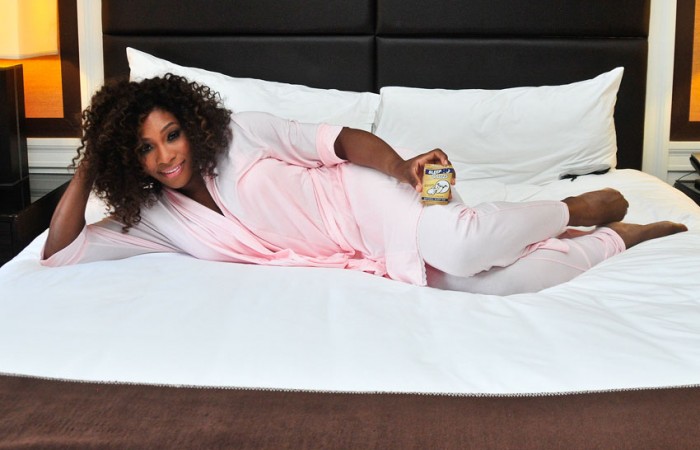10 tips to get the perfect night’s sleep
Professional athletes and dedicated amateurs will extend their pre-match preparation to include making sure they get a good night’s sleep.
Melbourne, Australia, 15 June 2013 | Dr Andrew Peden | Australian Tennis Magazine

Adequate pre-match preparation will mean that you are not unnecessarily stressed by matters off the court, allowing you to focus your mind and body on the actual match.
Most of us will prepare our racquet bag with all of the equipment necessary to play, and some of us will have a game plan, having researched our opponent’s strengths and weaknesses. But the professional athlete and the dedicated amateur will extend their preparation to include making sure they get a good night’s sleep.
Anxiety interferes with sleep – how many times have you lain awake at night with worrying thoughts running through your mind? Lack of sleep affects your ability to remain alert during the day and can cause your on-court reactions to become dull and slow.
A good night’s sleep is essential preparation to play to the best of one’s abilities. Here’s how you can get a restful one.
1) Do some exercise each day – but not too close to bedtime, as this will make your mind and body too alert
2) Avoid long naps – try not to nap for more than 10-15 minutes during the day so that you will be tired at bedtime
3) Develop a “sleep ritual” or bedtime routine – this sends the right messages to your body and brain that you are about to wind down and sleep. For example, have a warm bath to relax your body, but avoid showering because this is too stimulating. Try and set a regular bedtime and waking-up time – even at weekends – in order to allow your body’s internal clock to regulate itself to a stable pattern
4) Sleep in the same bedroom/bed every night – and reserve the bed for sleeping only. Don’t use it for activities such as paperwork or exercise, as these will only send mixed messages to your subconscious mind
5) Allow enough time in bed – aim for around eight hours of sleep a night in order to be fully rested for the day ahead
6) Create a ‘sleep-conducive environment’ – this includes a comfortable mattress and pillows in a darkened, quiet room, free from distractions such as televisions and computers. Keep the temperature cool rather than cold or too hot.
7) Watch what you eat – avoid heavy meals in the hours before bedtime; avoid spicy food or foods high in tyramine (including cheese, bacon, nuts and soy sauce), which trigger the release of the neuro-stimulant norepinephrine. Instead, eat foods such as bread or cereal which trigger the release of serotonin, another neurotransmitter which helps make us sleepy.
8) Watch what you drink – avoid alcohol, a diuretic will make you get up several times during the night to go to the toilet, and avoid caffeine, as it’s a stimulant. Instead, try drinking milk, which contains tryptophan; this triggers the release of serotonin and helps slow down brain activity.
9) Avoid nicotine – this is also a stimulant.
10) Trouble falling asleep? Do some breathing exercises to relax your body and mind; perform your own relaxation techniques or use a relaxation/sleep tape – there are several commercially available. Don’t clock-watch and if you must get up in the night, do something boring such as reading a dull book. Avoid doing anything that might stimulate your brain.
Dr Andrew Peden is a Chartered Psychologist and Associate Fellow of the British Psychological Society and author of the book Managing Performance Anxiety in Tennis.
For more tips from the experts on how to improve your game, check out the latest edition of Australian Tennis Magazine.